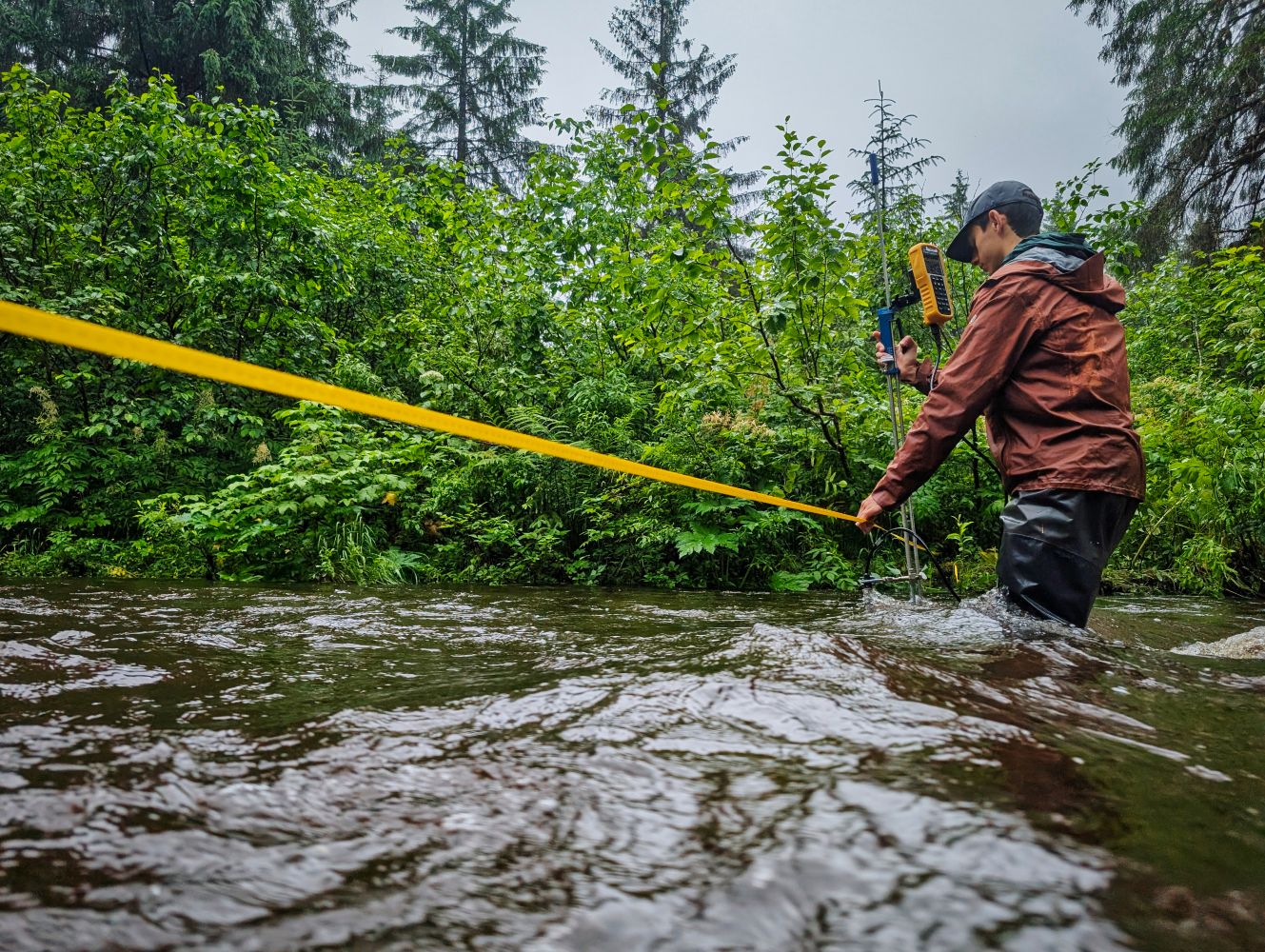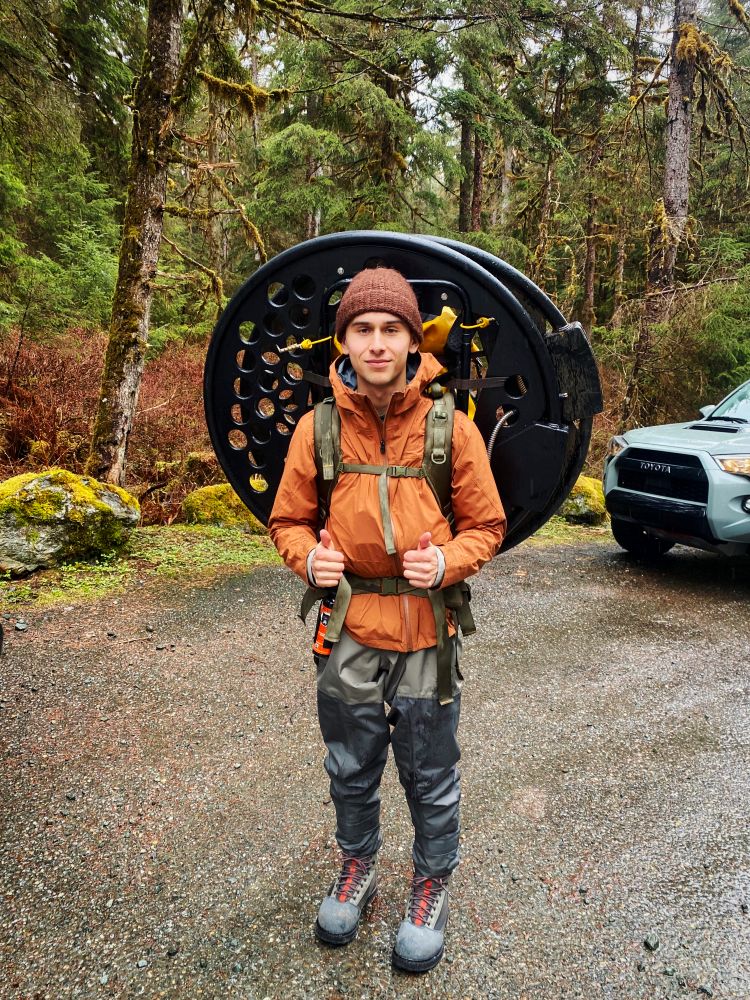Bikes, Bugs, and Baby Salmon: A summer of field science with ACRC

Hi! I’m Jake Watkins and I'm a soon to be senior at UAS studying fisheries and ocean science. This summer at ACRC, I’ve been working alongside Blake Toney as a research technician looking at juvenile salmonid responses to extreme flow events. I’ve known about ACRC and some of the rad fisheries ecology work that they’ve been doing since I started studying at UAS. I was definitely most intrigued by all the extensive hands-on work they were doing. When I heard about a potential position being available I knew it would be a great opportunity to learn some invaluable field and lab skills. Additionally, thoughts surrounding graduate school have also been lingering in my head and I thought this position would help me better understand the grad school process.
Indeed those invaluable field and lab skills were delivered. I learned the ins and outs of monitoring water quality. I became proficient at applying PIT tags to fish in order to monitor their movement and growth. I learned how to perform gastric lavage on fish to collect diet samples. In the lab, I sorted and analyzed said diet samples and while I only made baby steps toward becoming a bug expert, I definitely became a bug enthusiast. Most importantly, I became better at problem solving, being more comfortable doing science in the field, and coming up with unique questions about our environment.
A typical day in the field involved biking out to our sites along Montana Creek, which always felt too good to be true. We would then set our minnow traps before checking sensors and grabbing water samples to measure turbidity back in the lab. Next, we would pull the traps and measure and weigh each fish, as well as scan for PIT tags. If fish are not already tagged, we apply PIT tags, or for a few lucky fish, gastric lavage. With samples and data collected and fish returned to their streams, we bike out and head back to the lab. The project’s focus on extreme flow events has meant going out when the weather is at its worst. But it has also meant being out there when I wouldn’t otherwise be out there, allowing me to experience some memorable conditions. It also made me a bit stronger. It’s been so exciting to watch the project evolve through the seasons. Over the course of the project we got to see the environment around our sites change drastically. We watched the plants emerge, felt the water warm up, and observed the fish responding to changing conditions. I felt very connected to the area.
This summer at ACRC, I’ve gained so much more than I could have ever imagined. Beyond invaluable field and lab skills and insight into the grad school process, I got to meet really epic people and make some lifelong connections. Within the first weeks at ACRC, I met people from a variety of fields and organizations. Through these connections, I got to do some volunteer work with Trout Unlimited and take a float plane to do some remote fish sampling which was a highlight of the summer. I really enjoyed the sense of community in the Forest Service building and at ACRC. The weekly paper discussion exposed me to interesting topics in environmental science. Additionally, they helped me think scientifically and ask relevant questions.
The skills and insight gained this summer are going to be pivotal as I continue on through my undergrad and begin to take higher level fisheries and ecology courses. I'm especially excited to take fisheries ecology next semester as I've had a lot of experience thinking about and discussing ecology with everyone at ACRC. Next semester I plan on utilizing the data from this project to write my own mini-paper. I hope to find a connection between the emergence of skunk cabbage in the spring and the prevalence of rove beetles in the diets of juvenile coho salmon and dolly varden. Rove beetles are the primary pollinators of skunk cabbage and could be an early season food subsidy for little fish. I think this project will be a lot of fun and help me improve my data analysis skills. This summer at ACRC has helped me find my own interests, and has made me more inspired than ever to pursue a career as a fisheries biologist.
